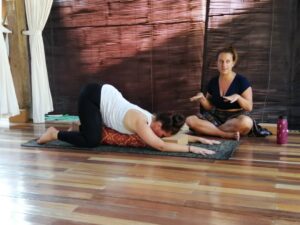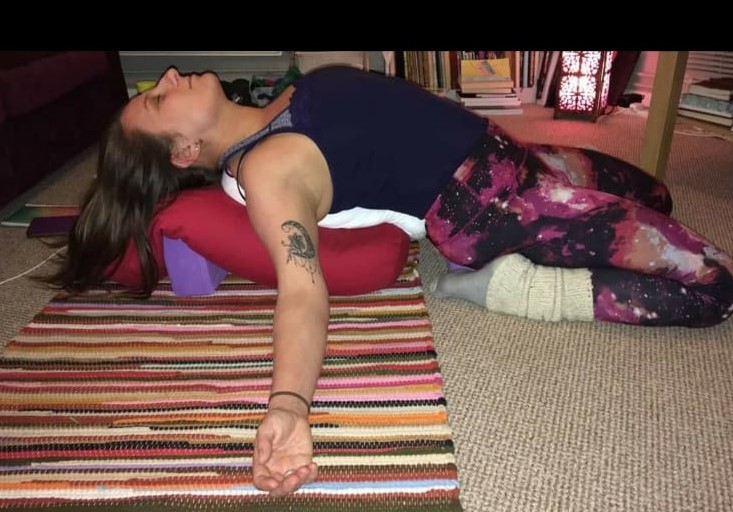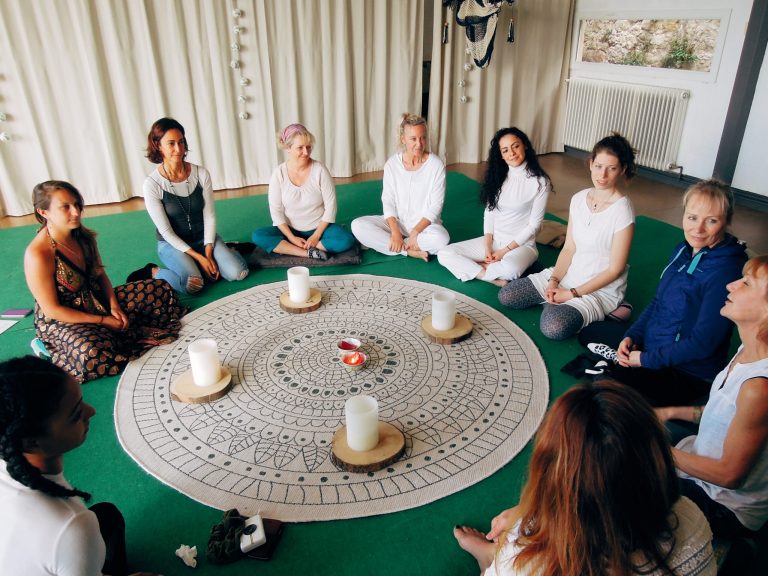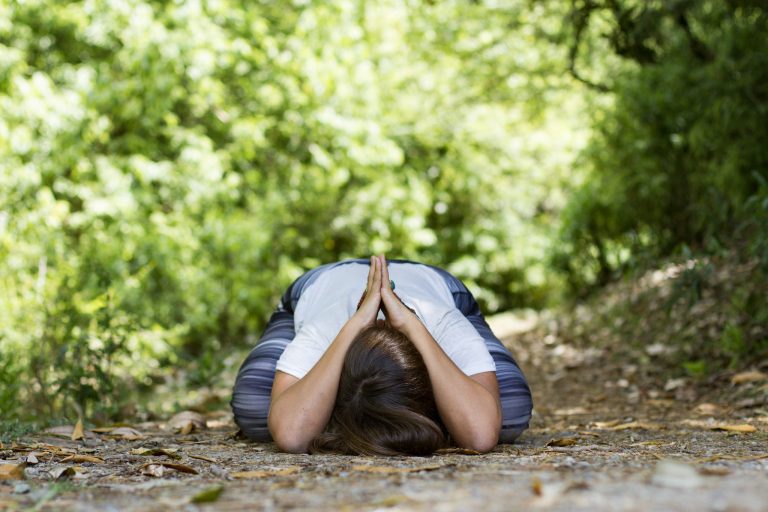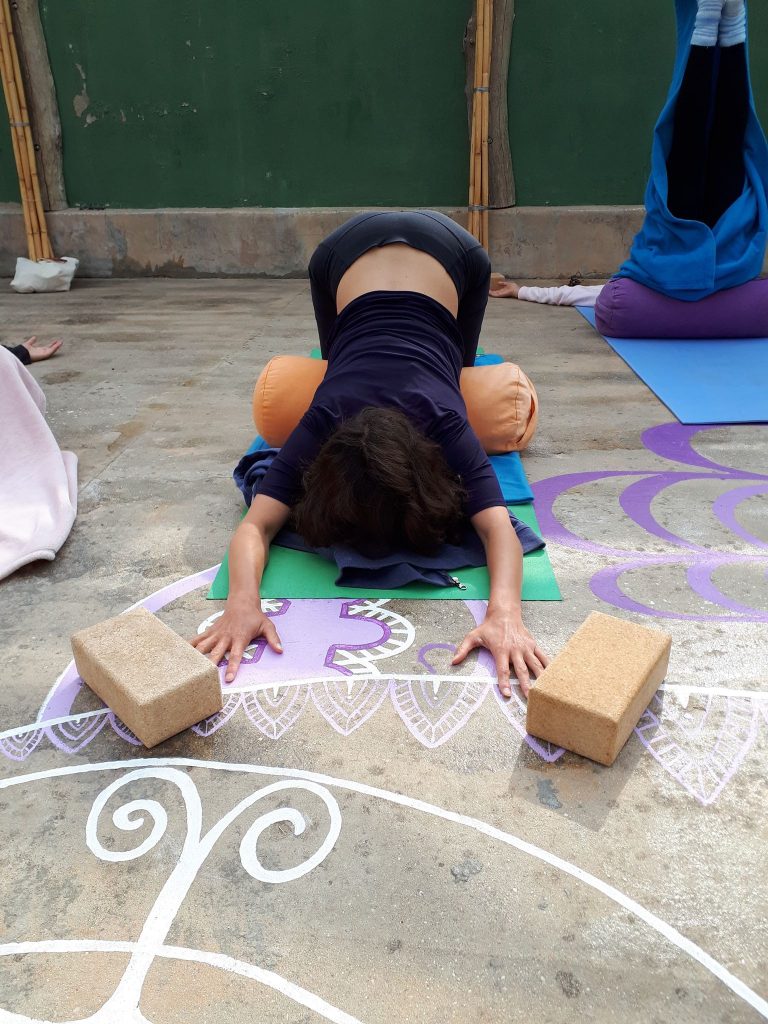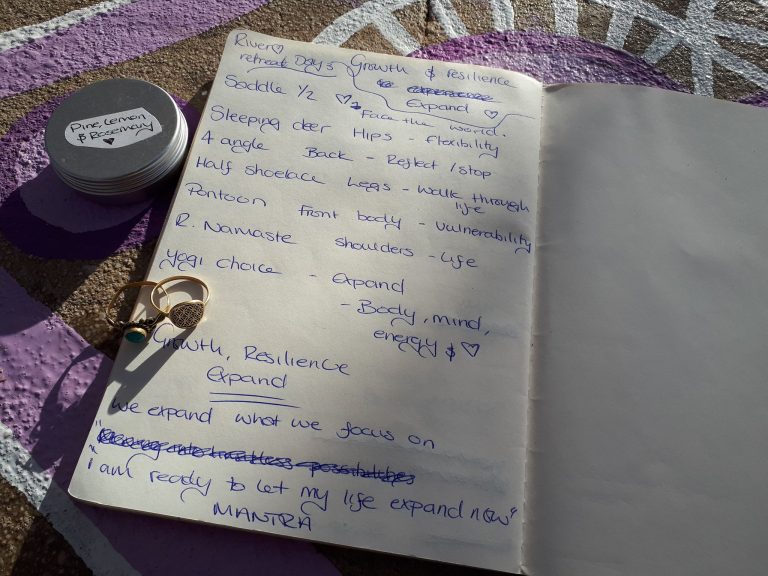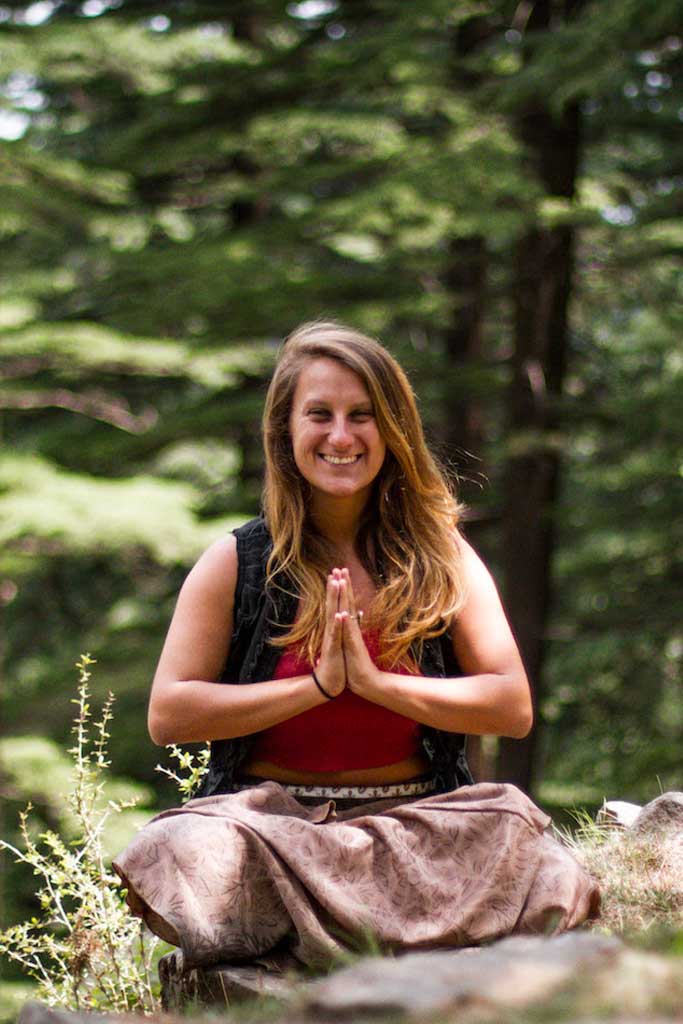Teaching Yin Yoga from a Mental Space
Written by Mary-Rose Dias
Yin yoga can offer an optimal space for working with and nourishing mental health. It is important that yin yoga teachers teach safely from a mental space, are aware of the mental health benefits of yin yoga and understand how they can best support their students to receive these benefits in a therapeutic way.
Yin yoga asana activates the parasympathetic nervous system which supports students to feel more at ease, calmer and more settled. Skilled yin yoga teachers can introduce yin asana to their students to support them to create an environment in their minds that is more accepting of stillness and receptive to working with their psychology and practicing mindfulness. Mindfulness is a practice that greatly supports optimal health and wellbeing and the yin yoga space is highly conducive to beneficial practice. Skilled yin yoga teachers can encourage their students to find stillness and hold postures for an extended period of time and create a safe space for them to sit with whatever is arising without resistance, avoidance or distraction. Sometimes in a yin yoga practice students’ minds may be chattering loudly and they may have fear, sadness, desire, discomfort or any other sensation or feeling present. Yin yoga teachers can gently support students to mindfully notice these sensations without judgement or action. This practice of mindfulness can empower the minds of students and teach them that they have the capacity to meet and interact with their psychology and senses without the need to ‘run away’, resist or avoid. Mindfulness is a powerful tool that is practiced in yin yoga and by introducing mindfulness safely, yin yoga teachers can offer their students a valuable gift. Yin yoga teachers can support their students to recognise that their thoughts, emotions, feelings, beliefs and sensations do not have the power to limit, control or consume them.
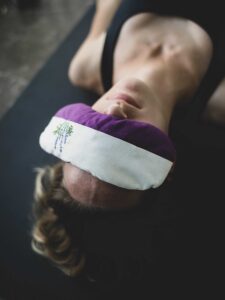 The mental health benefits of practicing yin yoga are reflected on a neurological level. Neuroplasticity is a term that refers to our brains capacity to change, adapt and reorganise in response to repeated, committed practices. By encouraging and holding space for students to practice mindfulness in yin yoga, skilled yin yoga teachers can support their students to re-wire their brains in a healthy and positive way. Overtime, students will learn that intense emotions and feelings do not have to be feared, avoided or identified with, and that yin yoga is a safe space to cultivate a healthy relationship with their psychology. It is important that yin yoga teachers support students to understand that the lens through which they see themselves and the world is coloured by their psychology, and that they have the power to change their psychology and change the way they see, experience and interact with themselves and the world.
The mental health benefits of practicing yin yoga are reflected on a neurological level. Neuroplasticity is a term that refers to our brains capacity to change, adapt and reorganise in response to repeated, committed practices. By encouraging and holding space for students to practice mindfulness in yin yoga, skilled yin yoga teachers can support their students to re-wire their brains in a healthy and positive way. Overtime, students will learn that intense emotions and feelings do not have to be feared, avoided or identified with, and that yin yoga is a safe space to cultivate a healthy relationship with their psychology. It is important that yin yoga teachers support students to understand that the lens through which they see themselves and the world is coloured by their psychology, and that they have the power to change their psychology and change the way they see, experience and interact with themselves and the world.
It is important that yin yoga teachers have the skills to teach yin yoga safely from a mental space. Introducing tools such as breath sensing and body sensing, and supporting students to connect with an inner resource of safety and wellbeing are some ways that skilled yin yoga teachers can support their students to safely navigate their yin practice on a mental level. It is also important that yin yoga teachers understand and have received the appropriate training to teach yin yoga in a way that is trauma sensitive, and that they have referrals available (i.e. for psychologists or counsellors) to offer their students if needed. The mindfulness work that we do in yin yoga is powerful and sometimes yin students need additional support.
Yin yoga is an optimal practice for working with the body on a mental level. It is important that yin yoga teachers understand how to teach yin yoga asana and mindfulness safely from a mental space so that they can support their students to have a positive and healthy relationship with their minds and nourish and improve their mental health.
To dive deeper into this topic and learn more about how to teach yin yoga, Shanti Atma Yoga offers a variety of trainings exploring the many avenues to self-healing, teacher development and deepening your yoga practice:
Yin Yoga Teacher Training Online:
Yin Yoga Teacher Training: 100 hour Functional Anatomy and Chinese Medicine
Yin Yoga Teacher Training: 100 hour Pranayama, Meditation and Mindfulness
Yin Yoga Teacher Training: 80 hour Yin Yoga and Yoga Nidra
Yin Yoga Teacher Training: 50 hour Neuroplasticity and Mindfulness
Yin Yoga Teacher Training: 50 hour Essential Oils and Emotional Intelligence
Residential Yin Yoga Teacher Training:
Yin Yoga Teacher Training: 100 hour Functional Anatomy and Chinese Medicine
Yin Yoga Teacher Training: 100 hour Pranayama, Meditation and Mindfulness
Yin Yoga Teacher Training: 80 hour Yin Yoga and Yoga Nidra
Yin Yoga Teacher Training: 50 hour Neuroplasticity and Mindfulness
Yin Yoga Teacher Training: 50 hour Essential Oils and Emotional Intelligence
Yin Yoga Teacher Training: 200 hour 5 Bodies Approach
Yin Yoga Training Locations:
Yin Yoga Teacher Training Bali
Yin Yoga Teacher Training Thailand
Yin Yoga Teacher Training India
Yin Yoga Teacher Training Spain

